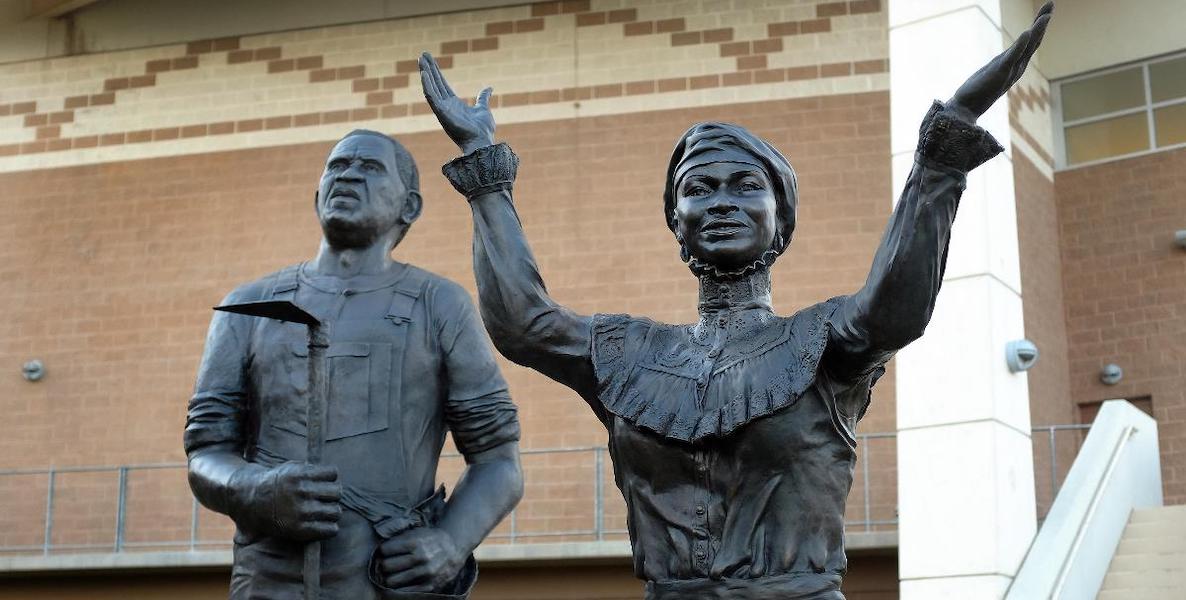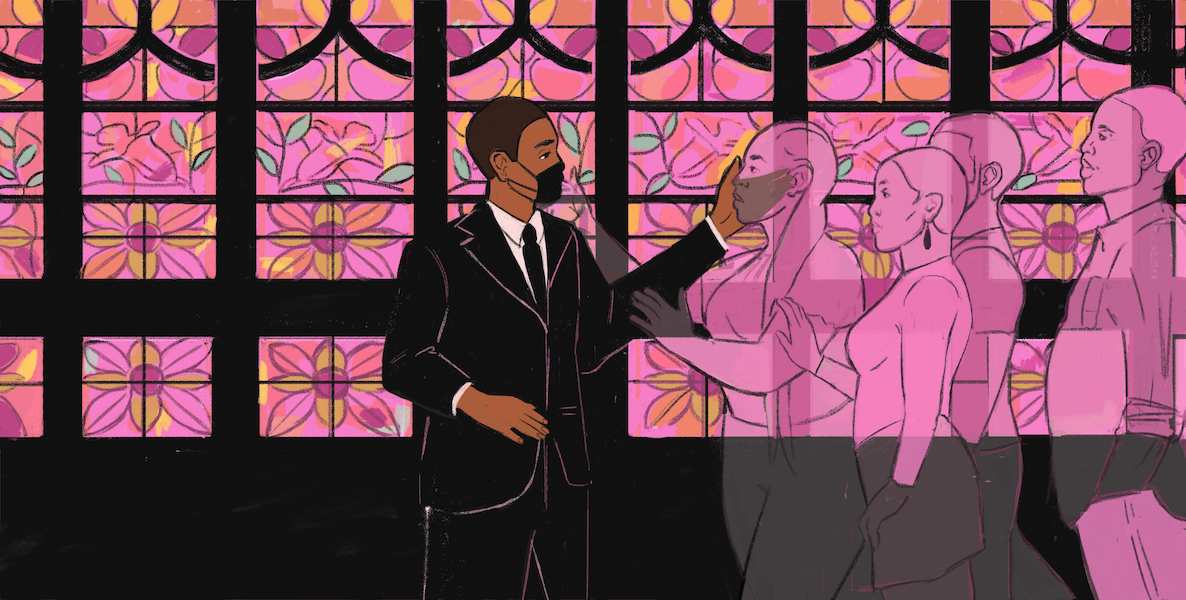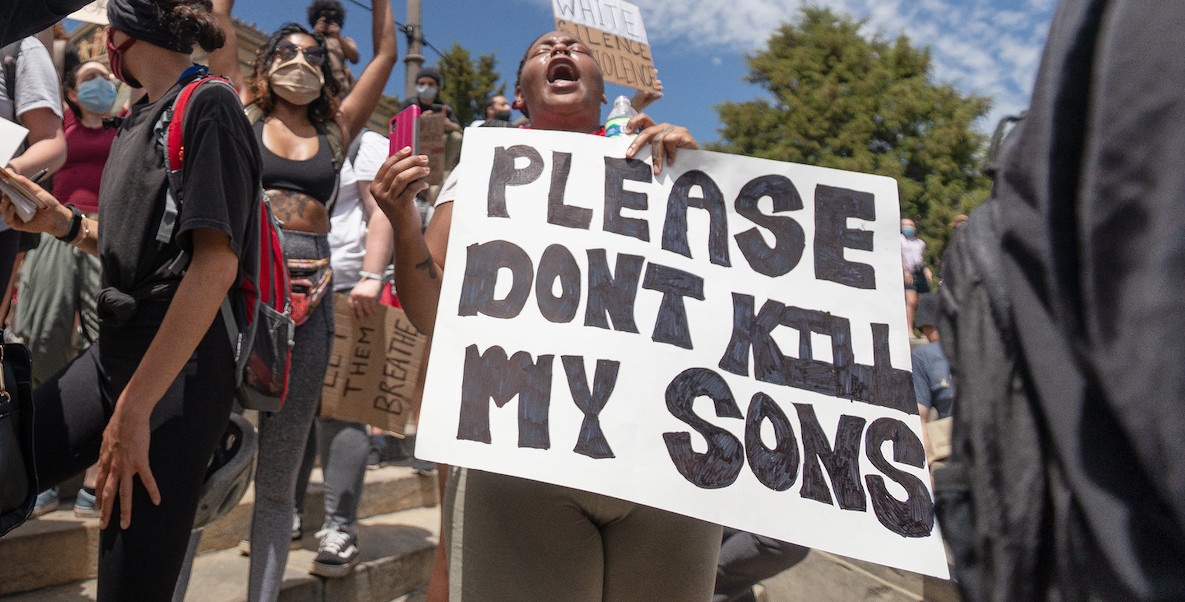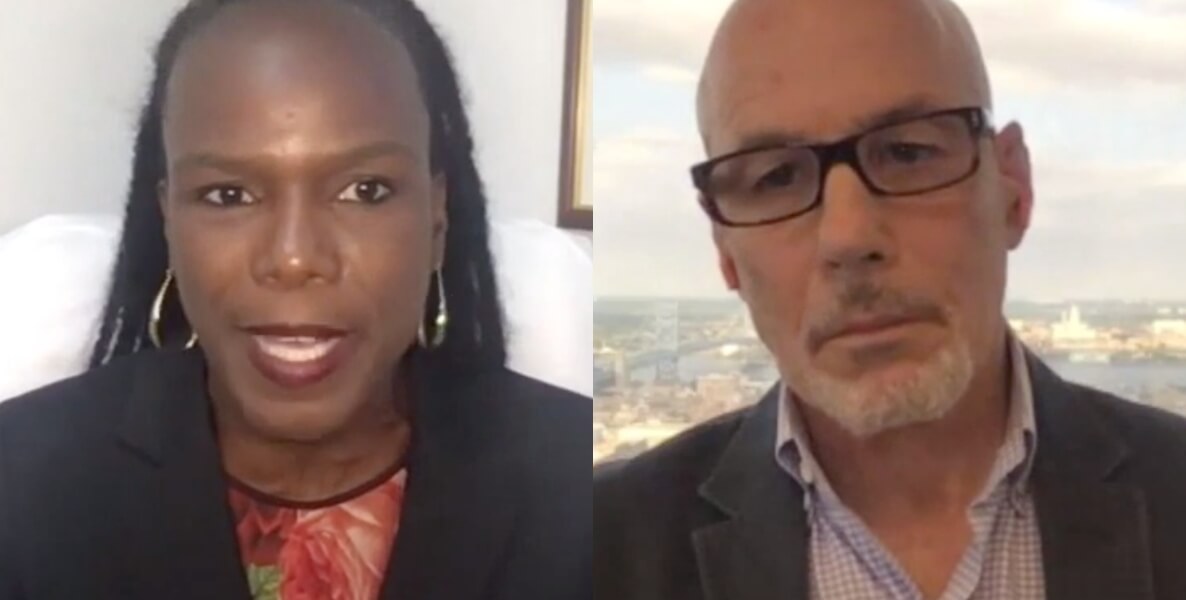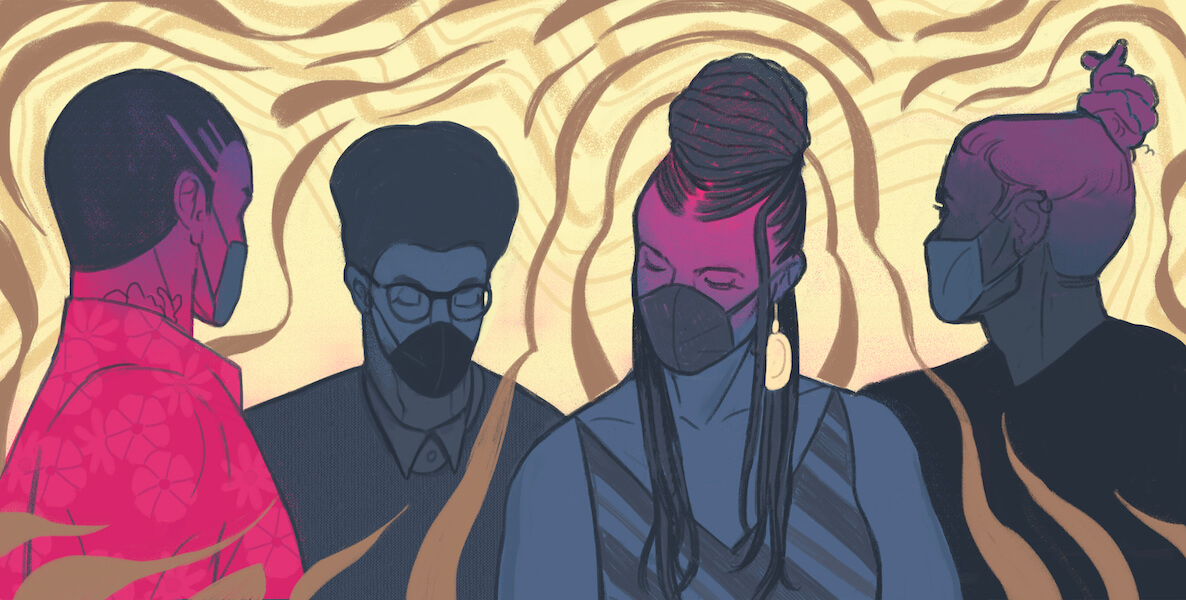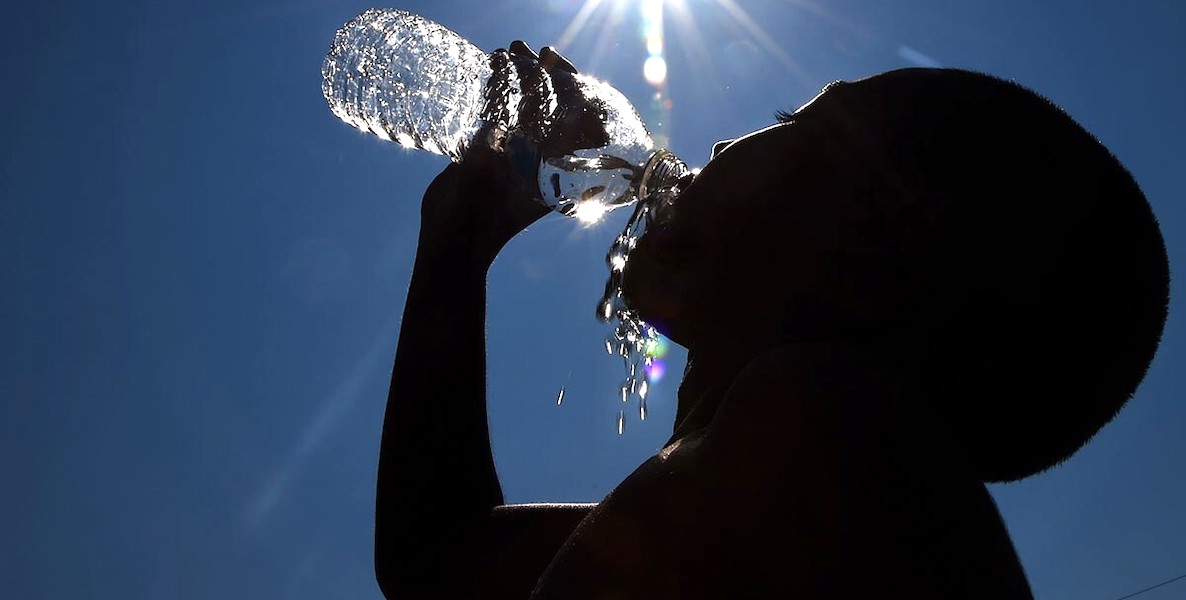In a moment where many Americans are celebrating independence, our nation remains tethered to a rapidly growing pandemic that shows no signs of abating.
Over the last week, the United States consistently set daily records for the number of coronavirus cases. The federal government claims this is because we are testing more. They continue to equivocate about the importance of wearing masks. And the White House’s next strategy is to tell us to learn to live with the deadly virus in our midst. Either they are crazy; or we are.
![]() The discourse on disparities in health care has become a feature of our understanding of the many ways that the coronavirus and Covid-19 continue to impact our communities. Now, as the numbers continue to spike, mental health professionals are sounding an alarm. The pandemic will produce mental health “aftershocks” that will result in increased cases of anxiety, depression and possibly suicide.
The discourse on disparities in health care has become a feature of our understanding of the many ways that the coronavirus and Covid-19 continue to impact our communities. Now, as the numbers continue to spike, mental health professionals are sounding an alarm. The pandemic will produce mental health “aftershocks” that will result in increased cases of anxiety, depression and possibly suicide.
And much like underlying health conditions and Covid-19 mortality rates, these mental health aftershocks will have a disparate impact on the Black community.
The historical relationship between the Black community and mental health care is complicated.
In 1851, Dr. Samuel Cartwright argued that enslaved Black people who fled their oppressive conditions suffered from “drapetomania”—from the Greek terms drapetes (runaway slave) and mania (madness). Based upon this racist pseudo-scientific logic, Frederick Douglass, Harriet Tubman, Harriet Jacobs and Kunta Kinte were all “drapetomaniacs.”
Given the ongoing protests for Black liberation in the streets of America, maybe there are more “drapetomaniacs” in this nation than there ever have been. Count me in their number.
The Black community’s skepticism of mental health care is informed by the racialized history of American medicine, but it has deleterious consequences for Black Americans who are afflicted with mental health challenges.
“You simply cannot be healthy if you are not mentally healthy,” Dr. Eunice Peterson, a board-certified psychiatrist, tells me. “The Black American community has a collective consciousness of the institutional racism and discrimination that exists in our country’s health care system because institutions and individuals continue to contribute to the databank.”
Like many other mental health professionals of color, Peterson points to the Tuskegee experiment, female sterilization initiatives, and the harvesting of Henrietta Lacks’ DNA as notorious examples of how racism infects the interface between Black folks and mental health care.
Dr. Mohammadreza Hojat, a psychologist and researcher at Thomas Jefferson University, argues that there are many hurdles that will impact how the mental health aftershocks from Covid-19 will be addressed overall, but particularly for the African American community.
“Disbelief in the mental health care system is first among them,” he says. Other hurdles include the full range of challenges that Black people regularly face in order to access health care—affordability, proximity and/or transportation and the cultural competence of mental health care providers.
Dr. Hojat’s recent Inquirer op-ed warns that there will be a drastic uptick in the demand for mental health care. Loneliness, social distancing, the un-mourned loss of life, joblessness, and various issues related to Covid-19 will produce more cases of anxiety, depression and other mental maladies.
But these concerns are only compounding mental health issues that have long existed among Black Americans in large urban centers like Philadelphia, where pockets of concentrated poverty, under-resourced schools, over-policing and the erosion of residential infrastructure cultivate fertile grounds for neighborhood violence. This violence leads to what Drexel University’s Healing Hurt People refers to as sustained traumatic stress reactions—there is no “post” for Black communities.
The Black community’s skepticism of mental health care is informed by the racialized history of American medicine, but it has deleterious consequences for Black Americans who are afflicted with mental health challenges.
Jamal Ford, a youth resources coordinator for the PA CARE Partnership is deeply concerned about how Black mental health aftershocks from the Covid-19 quake will continue to disparately impact an already vulnerable community. “In the wake of this pandemic, when reporting structures are back to normal, you will see a rise in reported suicide attempts, child abuse and mental illness diagnoses,” Ford says.
There may not be a return to normal at all, much less in the reporting structures for mental health concerns. But in order to address the aftershocks, the gap between the Black community and the entire mental health enterprise must be directly addressed.
Mental health professionals in Philadelphia are stepping up to this challenge.
Ronald Crawford, is a North Philadelphia-based therapist who uses hip-hop to treat trauma in his patients because, he says, “ a lot of black men express their identity through hip-hop culture.” Crawford tells me that “Black people will suffer in silence” with mental maladies because of the stigma of seeking help and because of the long history of alienation from mental health care informed by an absence of empathy and cultural competence in the fields of counseling, therapy and overall mental health care.
According to Crawford, even when Black folks overcome the history of racism and the community-based stigma of mental health care, they may be receiving the wrong mental health treatment. “Most of the people that are giving Black people therapy are giving them white-people therapy,” he says.
![]() For Crawford (and others) this means that they must radically revisit their own professional training in order to make their services relevant for their constituents. Given the fact that “drapetomania” was actually a mental health “thing,” the notion that Black therapy must specifically redress historical white supremacy and racism in mental health services resonates with the impending challenges that Black Americans will face in the mental health aftermath of Covid-19. Crawford is not alone in his assessment of the problem of or in his sense of the pathway forward.
For Crawford (and others) this means that they must radically revisit their own professional training in order to make their services relevant for their constituents. Given the fact that “drapetomania” was actually a mental health “thing,” the notion that Black therapy must specifically redress historical white supremacy and racism in mental health services resonates with the impending challenges that Black Americans will face in the mental health aftermath of Covid-19. Crawford is not alone in his assessment of the problem of or in his sense of the pathway forward.
The stigma associated with seeking mental health care in the Black community is a thorny mix of historical racism, culturally exclusive therapeutic practices and the intra-communal sense that turning to formal mental health care suggests a particular kind of vulnerability shaped by the very racism (and racist practices) that alienates would-be Black clients and clinicians alike.
One mental health professional still believes that Black folks desire mental health care despite these long standing impediments. “We want the therapy; we just want to sit across from somebody who understands us,” they say.
Saleemah McNeil is an experienced family therapist and the lead at the Oshun Family Center in Philadelphia, a center that takes a deliberately African-centered approach to its mental health services. The Association of Black Psychologists (ABP) has formally adopted an African-entered approach to their work as well. According to them: “Black/African centered psychology recognizes: the Spirit that permeates everything that is; the notion that everything in the universe is interconnected; the value that the collective is the most salient element of existence; and the idea that communal self-knowledge is the key to mental health.”
The value placed on the collective and the embrace of communal self-knowledge resonate with the culturally competent innovations needed in this moment. Black mental health care requires some sense of collectivism given the historical alienation of Black people from mainstream/traditional mental health services. And self-knowledge at the community level creates space for mental health professionals to tap into distinct experiences in order to treat mental health challenges over-indexed in the Black community. Still, McNeil is clear on the challenges ahead: “As therapists we are seen as part of the racist system; and there isn’t a lot of buy-in from the Black community.”
![]() McNeil argues that training in predominantly white institutions has pitfalls for Black mental health care providers who are committed to working in the Black community. “The whole therapy world is a very Eurocentric world,” she explains. McNeil recalls that certain ideas were repeatedly referenced in her training: “Black folks are the hardest to get to therapy, the hardest to retain in therapy and the hardest to treat in therapy.”
McNeil argues that training in predominantly white institutions has pitfalls for Black mental health care providers who are committed to working in the Black community. “The whole therapy world is a very Eurocentric world,” she explains. McNeil recalls that certain ideas were repeatedly referenced in her training: “Black folks are the hardest to get to therapy, the hardest to retain in therapy and the hardest to treat in therapy.”
In order to make an intervention in the predominately white world of mental health and therapy, Black service providers will have to continue to explore innovative ways of addressing the mental health needs of their communities.
Mr. Crawford integrates hip-hop into his work in compelling ways that center the culture of his patients. They listen to the music—together sometimes—and Crawford challenges and encourages his clients through value clarification exercises designed to wrestle with the materialism, misogyny, violence and drug use often referenced in the music. This same kind of listening practice allows Crawford to use psycho education to directly confront the glorification of opioids and other drugs in the music and the culture.
This work also requires Crawford to mine the constructive aspects of the music and culture as well. He works with his clients to process the ways in which some contemporary artists wrestle with their own mental health, experiences in therapy and their problems with addiction in some of the most transparent music in the genre. He cites the music of J. Cole, Jay-Z, Logic, and Eminem amongst many others.
Crawford’s embrace of hip-hop culture as a methodological approach for building trust with his young Black clientele is an important way of reimagining what therapy can be in the Black community. He admits that even he was wary of seeking therapy or counseling when he needed it most as a young man wrestling with trauma and addiction. His experience mirrors those of many people in the Black community who associate therapy or seeking mental health counseling with signs of personal weakness.
The violence that we experience in our communities, at the hands of law enforcement and the violence of a pandemic that disparately impacts our communities presents yet another challenge during these challenging times.
One basic intervention, McNeil says, is to make going to therapy a more conventional feature of our conversations amongst friends and family across the community. Other mental health professionals believe that certain interventions will be specifically cultural in nature—like drumming, dance, guided meditation and mindfulness practices.
MBK Cares has been hosting online Zoom sessions during quarantine that have provided mental healthcare for over a thousand people—mostly Black men. Community Health Workers certified as peer specialists at the Center for Nonviolence and Social Justice at Drexel University use a peer-to-peer counseling model pairing young men who have survived violence-related trauma with their peers who are reeling from their experiences.
BEAM, the Black Emotional And Mental Health collective located in Los Angeles, is mission-committed to enhancing access to mental and emotional healthcare for Black people. They pursue this mission “through education, training, advocacy, and the creative arts.” BEAM’s offerings include programs designed to reimagine Black masculinity and a communal mental health literacy event called “Black Healing Remixed.” Programmatic healthcare efforts like those offered by BEAM, MBK Cares and others suggest that important models for how to center Blackness in mental health care already exist.
The consequences of ignoring these issues will reverberate for generations
Given the current and impending challenges for mental health professionals committed to serving the Black community, access to and affordability of care are also viable concerns for the foreseeable future.
Recently, McNeil initiated a fundraising campaign to provide free mental health care services for the Black community in Philadelphia. The response and the results of her effort have been astounding. Her initial goal was to raise $5,000 to provide free mental health resources to people of color in the Philadelphia area. To date she has raised more than $90,000 and in our interview she speaks candidly about her gratitude for the support. She is also committed to figuring out the most efficient ways to make this initiative sustainable beyond the pandemic moment.
Much like underlying health conditions and Covid-19 mortality rates, mental health aftershocks will have a disparate impact on the Black community.
“This is a time where hopelessness can set in,” she explains. Without a robust effort to address mental health in the Black community—in this pandemic moment—the consequences of ignoring these issues will reverberate for generations. But McNeil remains optimistic and resolute. “Oshun Family Center is committed to providing a space of refuge and healing” for the Black community, she says.
Mental health is a less visible but significant underlying condition in the global pandemic.
Black Americans are 20 percent more likely to experience anxiety and depression. Black people are more likely to experience PTSD.
The violence that we experience in our communities, at the hands of law enforcement and the violence of a pandemic that disparately impacts our communities presents yet another challenge during these challenging times.
If escaping brutal oppression for the allure of liberation has been our mental health legacy, then the current moment is not much different than 19th-century America. Historically we might have been able to run away from the brutal conditions of plantation life; but in order to escape the racial trauma that continues to capture our minds, we will have to slip the yoke of enduring stigmas and embrace the culturally relevant innovations in mental health care.
James Peterson is a writer, educator and consultant. The Color of Coronavirus series is supported by the Pamela and Ajay Raju Foundation.
Illustration by Noa Denmon


